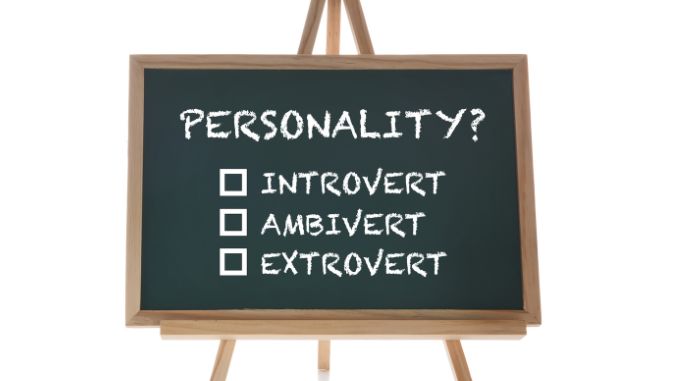Before we begin with extrovert personality, extroverted individuals paint a vivid canvas with their friendly, expressive, and energetic traits, infusing life with dynamism and enthusiasm. Their natural inclination toward social interactions allows them to excel in various settings rather than spending their time alone, which transforms ordinary moments into vibrant experiences.
This personality type, rooted in sociability, not only enrich their lives but also benefit the people and environments they engage with. This engaging post delves into the dynamic and sociable personalities who flourish in interactive environments.
What An Extrovert Is Like
Disclaimer: Please note that the facts in this content are provided for informational purposes only and are not intended as psychological guidance. Before initiating anything, it is recommended that you seek advice from a healthcare professional.
An extrovert is commonly described as a person who is outgoing, sociable, and energized by interactions with others. Extroverts tend to enjoy being in social situations, often finding them energizing and fulfilling. This all-or-nothing trait is inclined to seek out and engage in group activities, enjoy meeting new people, and feel comfortable in the company of others.
Extroversion is one of the five core traits in the Five Factor Model of the personality spectrum, often referred to as the “Big Five Personality Traits [¹].” The other four traits are openness, conscientiousness, agreeableness, and neuroticism.
Extroversion exists on a spectrum, and individuals may display varying degrees of introverted and extroverted characteristics. It’s important to note that personality is complex, and people may exhibit a combination of extroversion and introversion in different situations.

The Benefits Of Having An Extrovert Personality
Being an extrovert means that you are the life of the party and at the center of attention more of than not. If you feel you might be an extrovert, you might experience the following benefits the more extroverted tendencies you possess.

1. Success In Social And Professional Settings
Extroverts often excel in social and professional environments due to their outgoing nature, interpersonal skills, and positive association with high self-esteem.
They are naturally inclined to engage with others, making it easier for them to form connections and build relationships. Extroverts tend to be more comfortable in social gatherings [³] and can often navigate social situations with ease.
In social settings, this translates into having a wide circle of friends and acquaintances, while in the professional outside world, it can lead to increased opportunities for networking, collaboration, and career growth in the near future.
2. Networking And Relationship-Building
Extroverts are natural networkers. Their ability to strike up conversations and establish rapport with new people can be a significant asset. They tend to be skilled at building and maintaining relationships, which can be beneficial in various contexts, from expanding one’s social circle towards the external world to creating professional connections.
People with more extroverted qualities often find it easier to connect with colleagues, clients, and potential business partners, leading to enhanced opportunities, and often connect with certain individuals to gain energy and a broader support network.
3. Contributions To Team Dynamics
Extroverts can be valuable team members due to their communicative and collaborative nature. They are inclined to share ideas, express their opinions, are great at public speaking, and actively participate in group discussions and projects. Their enthusiasm and energy can boost team morale and motivation.
In group settings, extroverts often take on leadership roles, helping to steer the team towards its goals and ensuring that everyone’s voice is heard. Their ability to energize and engage their teammates can lead to more productive and cohesive teams.
4. Increased Adaptability And Flexibility
Extroverts tend to be adaptable and flexible individuals. They are open to new experiences and readily embrace change. Their social and outgoing nature enables them to navigate various situations with ease and easily make new friends.
This adaptability allows extroverts to thrive in dynamic environments and adjust to different people and circumstances, making them versatile and resourceful individuals.
Potential Drawbacks Of Extrovert Personality

While extroverts bring energy and sociability to their interactions, they also encounter problems associated with their personality traits. The following are the common challenges experienced by extroverts or even people with mildly extroverted qualities.
-
-
Overstimulation And Burnout
-
One potential drawback of being an extrovert is the risk of overstimulation and burnout. Extroverts often seek out social interactions and external stimuli, which can lead to exhaustion if not managed properly. While extroverts do socialize a lot, introverts tend to be different in having self-composure and avoiding overstimulation.
The constant need for engagement and activity can sometimes result in physical and mental fatigue, especially if extroverts do not allow themselves enough downtime to recharge.
-
-
Difficulty In Solitude And Introspection
-
Extroverts may find it difficult to spend extended periods in solitude or engage in deep introspection. Their preference for external stimulation and social interaction may make it difficult for them to sit alone with their thoughts.
This can hinder their ability to reflect, meditate, or engage in activities that require some time alone, potentially impacting their personal growth and self-awareness. This type of attitude can mostly be resolved by reflecting, meditating, or engaging with a partner.
Balancing Social Needs With Personal Boundaries
Maintaining a balance between their social needs and personal boundaries can constantly challenge extroverts. Their desire for social interaction may sometimes lead them to overcommit or neglect self-care. This can lead to both parties feeling uncomfortable or awkward.
On one hand, others may find extroverts annoying, while extroverts might find others who won’t follow them as killjoys. As extroverts being the center of attention with a strong sense of leadership, this might come off to them as insulting.
Understanding Extroverted Traits
1. Sociability

Extroverts are often described as being naturally sociable and enjoying interactions with others. They may actively seek out social situations and feel energized by being around people. Extroverts are naturally inclined towards sociability of the outer world beyond their comfort zones, which means they strongly prefer interacting with others.
Extroverts often enjoy social gatherings, group outings, and the like, so if you suspect someone might be an extrovert, look no further; they will eventually show themselves to you.
2. Expressiveness
Extroverts tend to be expressive in both their verbal and non-verbal communication. They readily share their thoughts, feelings, and ideas with those around them. They may use gestures, facial expressions, and body language to convey their thoughts and emotions in social settings effectively. This openness and expressiveness help them connect with others on a deeper level.
3. Energetic
Extroverts draw energy from social interactions and external stimuli. Unlike introverts who may need solitude to recharge, extroverts thrive in dynamic and lively environments.
Being around people energizes them, making them feel invigorated and it helps their mental health. This natural energy can be contagious and contribute to a vibrant atmosphere, especially in vibrant social events.
4. Talkative
Many extroverts have well-developed social skills because of their outgoing personality. Extroverts are generally comfortable engaging in conversations and may be more talkative compared to introverts.
They enjoy verbal communication to connect with others and share their thoughts and ideas. They often contribute actively to group discussions and can be engaging communicators.
5. Adventurous
Many extroverts are open to new experiences and enjoy trying new activities. They are curious about the world around them and willing to come out of their comfort zones. This adventurous mood can lead them to explore diverse hobbies, travel to unfamiliar places, embrace opportunities for personal growth, and even have more positive emotions than other traits.
Furthermore, this adventurous spirit can not only lead them to a promising career path because of the connections but also to a journey of self-discovery.
6. Team Player

Extroverts often excel in group settings and collaborative environments. They enjoy working with others, contributing to team dynamics, and may thrive in social interaction roles. Extroverts may find it challenging to maintain focus in solitary or quiet environments. They are accustomed to external stimuli and may struggle with tasks that require deep concentration.
This can affect their productivity in settings that demand sustained attention, such as studying or working on complex projects.
7. Initiative
Extroverted thinkers are often proactive and may take the initiative in social situations. They may be comfortable approaching new people and initiating conversations [²]. Extroverts are more likely to initiate social plans and actively pursue opportunities to engage with others. In a society that often values extroverted qualities, extroverts may feel pressured to conform to social norms.
In a society that often values extroverted qualities, extroverts may feel pressured to conform to social norms. This can lead to a disconnect from their authentic selves and may cause internal conflict and stress as they attempt to fit into the extroverted expectations of others towards them.
8. Enthusiastic
Extroverts tend to express enthusiasm and excitement, which can be contagious. Their positive energy can contribute to a lively and engaging atmosphere. Extroverts may be so eager to share their thoughts and are so accustomed to public speaking that they sometimes struggle with active listening.
They may interrupt others or be quick to offer solutions instead of empathetically listening to someone’s concerns.This can happen to anyone, even family members of an extroverted person, that they might come off with the image as someone rude. Active listening skill is a must to mitigate this problem.
9. External Processing
Extroverted people tend to think out loud and discuss their thoughts with others. They often find clarity and insight through verbal communication. In personal relationships, people with extroverted intuitive may find it challenging to connect with quiet or introverted partners who have different social needs and preferences.
Understanding and respecting each other’s differences in social interaction can be key to a healthy relationship. Despite the difficulties, some extroverts can manage to do this.
10. Risk-Taking

People with more extroverted characteristics are more inclined to take risks, whether in social situations or in pursuing new opportunities. They may embrace challenges and enjoy stepping out of their comfort zones. Extroverts may feel social pressure to be always outgoing, enthusiastic, and engaging, even when they may not feel up to it.
This pressure can lead to feelings of inauthenticity and stress when they cannot meet these expectations.
The Social Place of An Extrovert

The social status or place of an extrovert is multifaceted and influenced by various factors. Extroverts often excel in building social connections and living in the present moment. This can be advantageous in professional settings, contributing to career development and success. Their outgoing and communicative nature may position them well for leadership roles, where effective communication and team collaboration are essential.
In social settings, extroverts thrive and may enjoy popularity due to their sociable and friendly demeanor, contributing to the liveliness of gatherings. Their adaptability in navigating social hierarchies allows them to interact comfortably with individuals from diverse backgrounds. Extroverts, often seen as confident individuals, can influence the way they are perceived in a positive manner across social and professional settings.
However, it’s essential to recognize that an individual’s social status is complex and influenced by a combination of factors, with personality traits being just one element in the intricate tapestry of social dynamics. In addition, societal and cultural norms play a significant role in shaping perceptions of social status.
Diversity Of Personality

People’s personalities are usually based on being either an extrovert or an introvert. Some even possess both personalities—an ambivert and an omnivert.
Here are the following personalities that one might encounter when mingling with people and their tendencies:
-
-
Introvert
-
Introverts tend to be characterized by their preference for internal thoughts and feelings. They recharge through time spent alone or in quiet, less stimulating environments. They tend to find social interactions draining and often need periods of solitude to restore their energy.
Should they interact, though, they can hold deep conversations and meaningful interactions as they are generally more reserved and very thoughtful. As research suggests, the reserved personality type tends to avoid such social interactions and is locked in their inner world. They experience difficulties in how to sustain friendships or get new friends because of their social anxiety.
-
-
Ambivert
-
An ambivert is a personality trait that falls somewhere in the middle of the introvert-extrovert spectrum. People can display both introverted and extroverted traits, depending on the situation or context. This personality type often enjoys socializing but also need time alone to recharge. However, too much alone time can be detrimental to one’s social skills.
It is important to note that not all extroverts are bundles of energy that love interacting. While they have great social skills in social settings, there are also introverted extroverts. An introverted extrovert is another term for an ambivert. These are introverts that are extroverted feelers.
-
-
Omnivert
-
Omniverts can shift more decisively between introverted and extroverted behaviors. They might lean more towards extroverted tendencies or introverted but it all depends on the circumstances, rather than consistently falling in the middle. In some situations, they take on an extroverted approach to mingle with the people.
People with this personality type usually have higher life satisfaction because they can receive the best of both worlds from the two personality traits; introverts and extroverts.
Conclusion
Extroverts personality excel in social navigation, networking, and leadership, illustrating the benefits of extroverted traits in various settings. However, extroversion is just one aspect of personality. Including introverts and ambiverts enriches our social environment, as introverts contribute introspection and calm. In contrast, ambiverts blend and adapt traits from both extremes, enhancing adaptability in diverse scenarios.
Recognizing this spectrum promotes inclusivity and balanced social interactions. Embracing a society that values the nuances of all personality types, including extroverts, introverts, and ambiverts, is crucial for creating environments where everyone feels empowered. This approach fosters a diverse and harmonious society, celebrating a rich tapestry of human characteristics.
Unlock your brain’s full potential with our 14-Day Brain Health Quick Start Program! Join us in this transformative journey to boost cognitive function, enhance focus, and improve overall mental well-being. Don’t wait to invest in your brain health – take action today and experience the difference. Are you ready to unleash your mind’s power? Check out now!

Rick Kaselj MS, is a leading kinesiologist and injury specialist as well as co-creator of the best-selling Unlock Your Hip Flexors program. Rick creates exercise programs that help people heal injuries and eliminate pain, so they can go back to living a full, active, healthy life.




